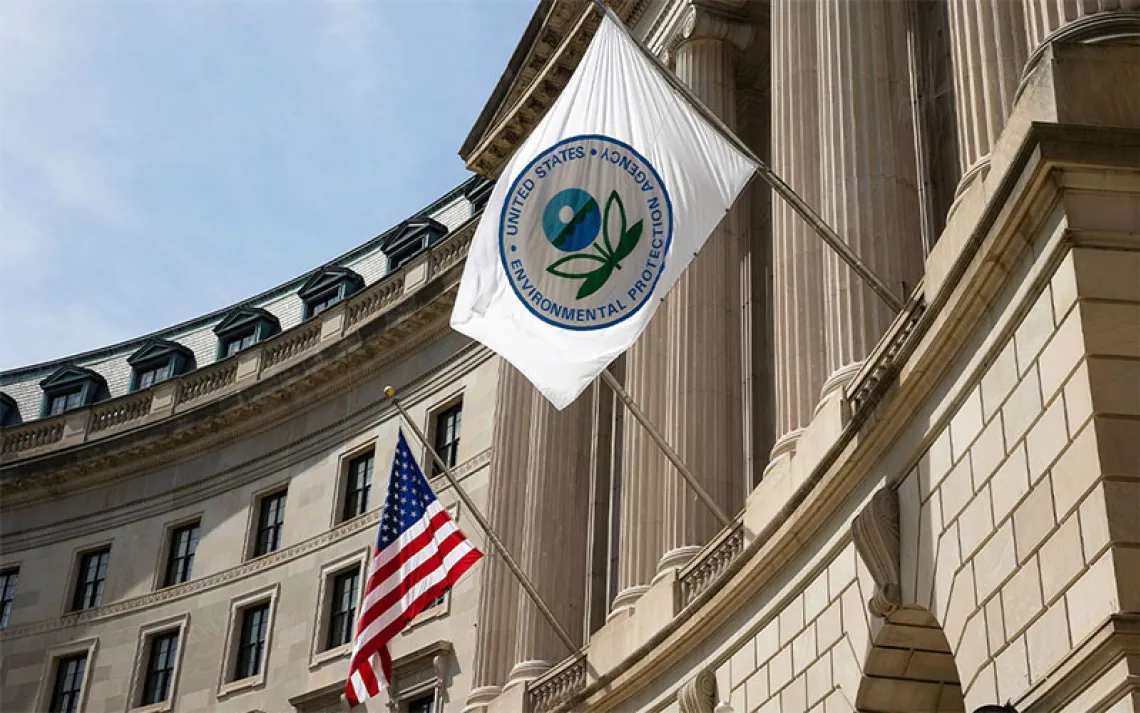In Advance of COP28, Activists Want to “Make Big Oil Pay”
London activists want oil and gas money out of politics

Swedish activist Greta Thunberg (center) joins a protest days after getting arrested in London. Climate activists marched then sat outside JPMorgan Chase and Barclays headquarters in protest against fossil fuel financing. | Photo by Vuk Valcic/SOPA Images/Sipa USA via AP Images
On October 17, an unseasonably warm day for this time of year in London, oil executives, financiers, and politicians gathered for their annual “Oil & Money” conference to discuss how to maintain oil and gas profits as the world attempts to move towards carbon neutrality. They found the doors to their venue, the Intercontinental Hotel, blocked by hundreds of protesters chanting “oily money has to go.” A black banner with the slogan “Make Big Oil Pay” written in yellow block letters hung from the rooftop above the barricade, flanked by two Greenpeace activists suspended by ropes. “From the outset we wanted the movement to be about ordinary people versus the billionaire oil elites and I think we really hammered that home,” said Josie, an organizer with Fossil Free London who prefers not to use her last name due to the group's disruptive actions. “Not only are these people destroying the home that we live in and the only planet that we know but that they are actively profiting off of it.”
The “Oil & Money” conference debuted in 1980. Global average temperatures have steadily risen since then, despite three decades of UN climate conferences that were intended to slow and even reverse that trend. Fossil Free London puts the blame for that failed effort squarely on the oil and gas industry’s active campaign to preserve its profits. Activists led by the group have protested the conference since 2018 (in 2019 its organizers changed the name to the “Energy Intelligence Forum”). They say the planned attendance of COP 28 president and current oil executive Sultan Al Jaber—and the recent decision to develop the largest untapped oil field, Rosebank, in the UK—gave this year’s protest an increased sense of urgency.
By disrupting the conference, activists hoped to call attention to the powerful interests groups profiting from the status quo, and make it clear that fossil fuel interests have no place in meaningful climate solutions.
Speaking to the press from the barricade outside the Intercontinental Hotel, Greta Thunberg said: "The elites of the oil and money conference, they have no intention of transition. Their plan is to continue this destructive search for profits. That is why we have to take direct action to stop this and to kick oil money out of politics." Thunberg was arrested later that day.
While oil and gas company press releases often express support for climate action, they quietly use other channels to block efforts that restrict the extraction of fossil fuels. Multiple climate modeling agencies have made clear that the success of any realistic plan to limit warming is solely dependent on a rapid phase-down of fossil fuels. Tom Holen, an analyst for Influence Map, a think tank that tracks corporate influence on climate policy making, points out that companies like BP and Shell use industry associations to lobby against the very climate targets that the member companies say they support. Holen notes that while BP and Shell released statements of support for the UKs carbon neutrality target of 2050, Offshore Energies UK—a group that BP and Shell are both members of—praised Prime Minister Rishi Sunak’s decision to pull back from key stepping stones on the way to that goal. Those steps, like banning gas heating in homes and ending the sale of petroleum cars, would have reduced oil and gas profits.
Pascoe Sabido, a researcher and campaigner at Corporate Europe Observatory, says the shift in oil and gas lobbying strategy is a tactic designed to ensure continued production in the near term. “They’ve moved from being climate denialists, say in the ‘90s and early 2000s… towards what we would call false solutions, like gas, carbon capture, and storage, carbon markets and offsetting, things that would allow it to carry on pumping oil and gas,” he said.
Rather than denying the reality of climate change, Sabido argues the oil and gas industry’s new strategy is to set the agenda when it comes to climate response. Josie sees the continued UK subsidies to oil and gas and the fact that the sitting CEO of an oil company is the president of COP 28 as evidence that their fossil fuel money continues to exert heavy influence at the highest levels of climate policy.
The day before “Oil & Money” got underway, Fossil Free London activists discovered that COP president Sultan Al Jaber had withdrawn from the conference and would not address the attendees. Activists claimed Al Jabar’s withdrawal from the conference as a victory, but Sabido says much of the same oil and gas industry talk takes place at the COP conferences themselves. There were 503 oil and gas lobbyists at COP 26, a number larger than the delegation of any single country. In COP 27, that number climbed by 25 percent to more than 600. Sabido expects the trend to continue. “It’s like Groundhog Day but it’s getting worse every time,” he said.

Sign up to receive Sierra News & Views
Get articles like this one sent directly to your inbox weekly.
With this action you affirm you want to receive Sierra Club communications and may vote on policy designated by the Sierra Club Board.
Sabido says the proliferation of oil and gas lobbyists and executives at COP, along with the countries like Saudi Arabia, Australia, and the United States that champion their interests, means much of the business of the conference is done away from the UN negotiating tables in pavilions set up by the very countries that block meaningful climate action in the negotiations. While nations have made some progress on renewable energy development, binding targets for emissions reductions do not seem closer to becoming a reality through COP in 2023 than they were in 1995 when the summit began. “People are asking why things aren’t changing, and I think people are seeing more and more the fossil fuel industry influence,” Sabido said.
There is precedent for removing corporate money from the political process at the international level. In the early 2000s, the tobacco industry was barred from World Health Organization talks aimed at limiting the health impacts of global smoking. Sabido is campaigning to recreate that success with fossil fuels but says the challenge is greater: oil and gas companies have deep links with other powerful industries like plastics, aviation, and automobile transportation.
As the stakes of political inaction continue to rise, Josie believes the climate movement must look towards more radical tactics to get governments to prioritize a livable future over profits for the fossil fuel industry. After decades of peaceful protest within the climate movement, Fossil Free London and groups like them are experimenting with disruptive tactics that are harder to ignore. Josie says 26 people were arrested for barring the doors to the opening day of the “Energy Intelligence Forum,” and they stopped the CEO of Shell from making it into the building.
“I think we need to use disruptive action to make them care, and to affect them personally,” Josie said. “It’s clear that just voting once every four or five years isn’t enough, and that taking these mass actions and getting everyone out on the streets, being loud and being visible, is the best option we have to get our voices heard.”
 The Magazine of The Sierra Club
The Magazine of The Sierra Club



